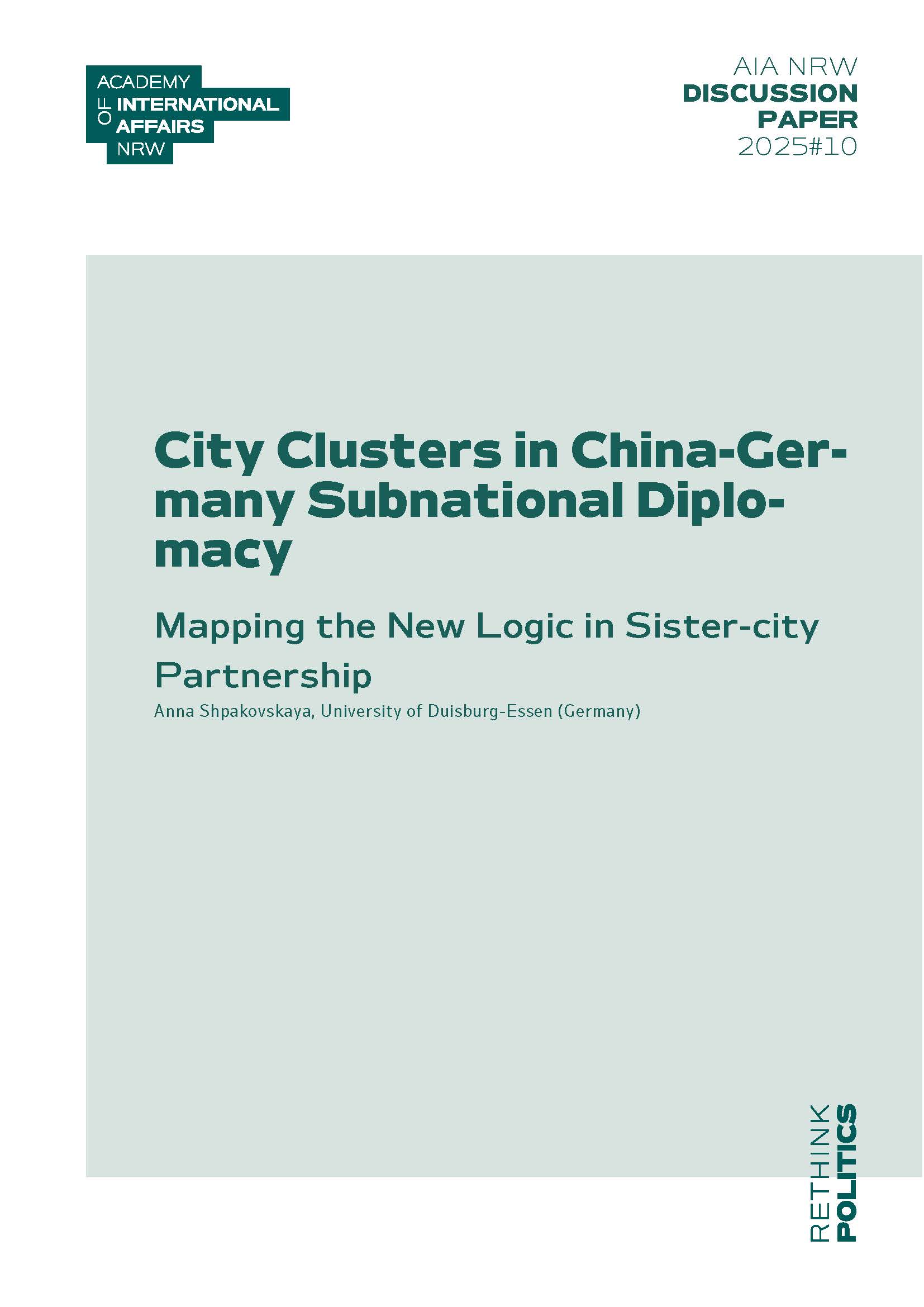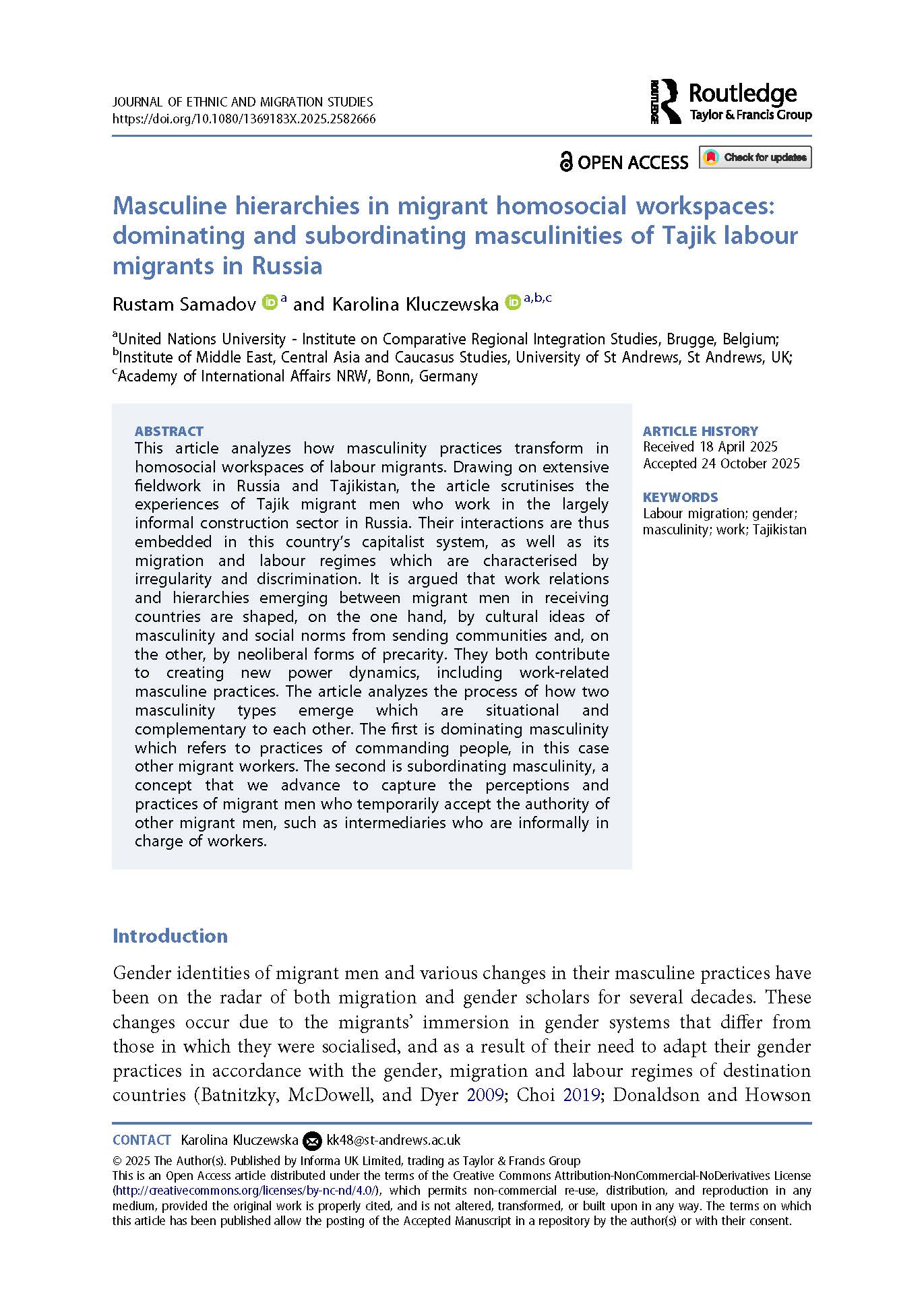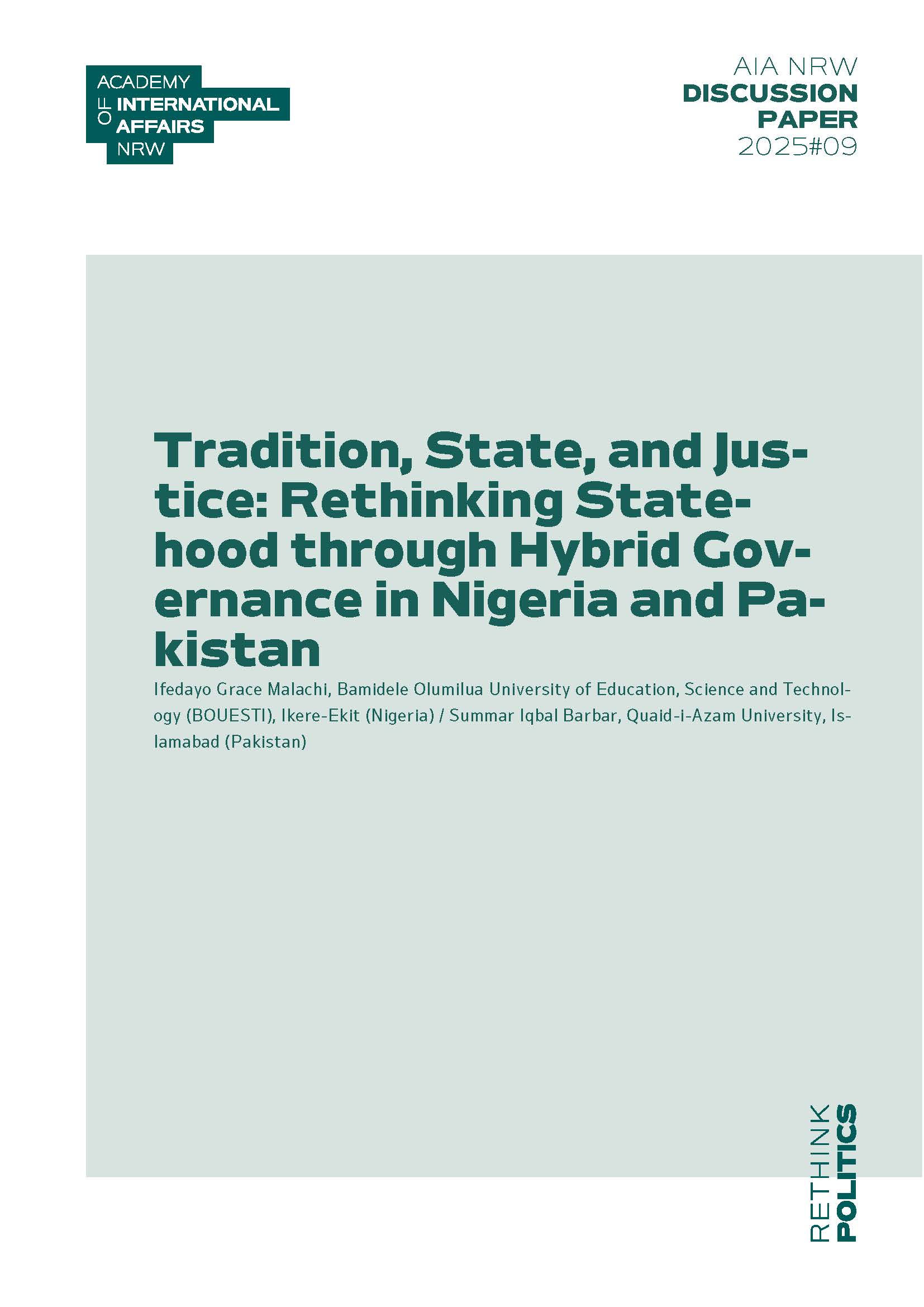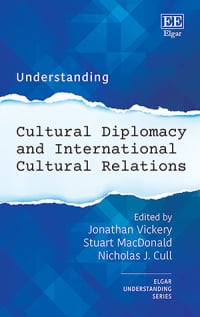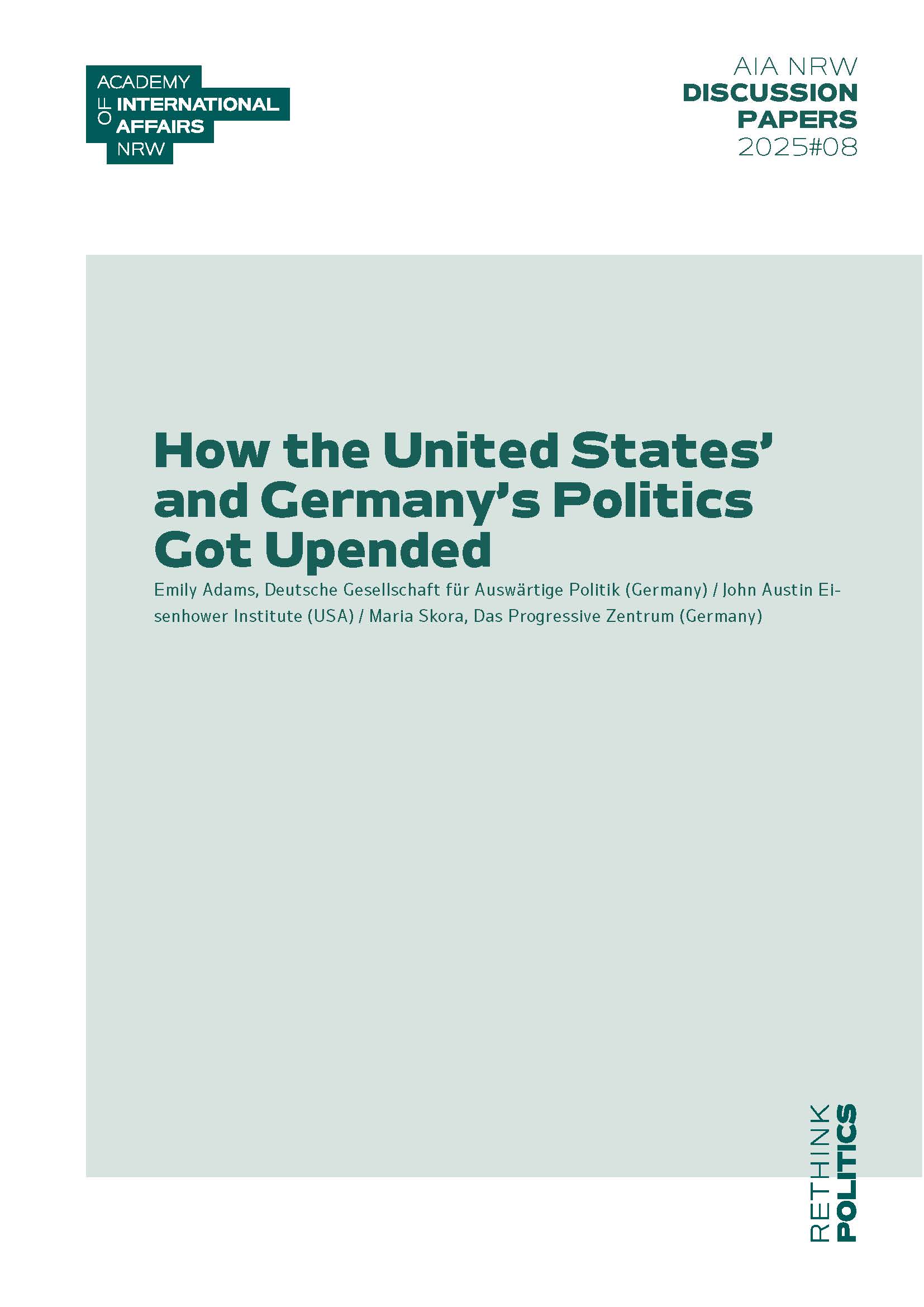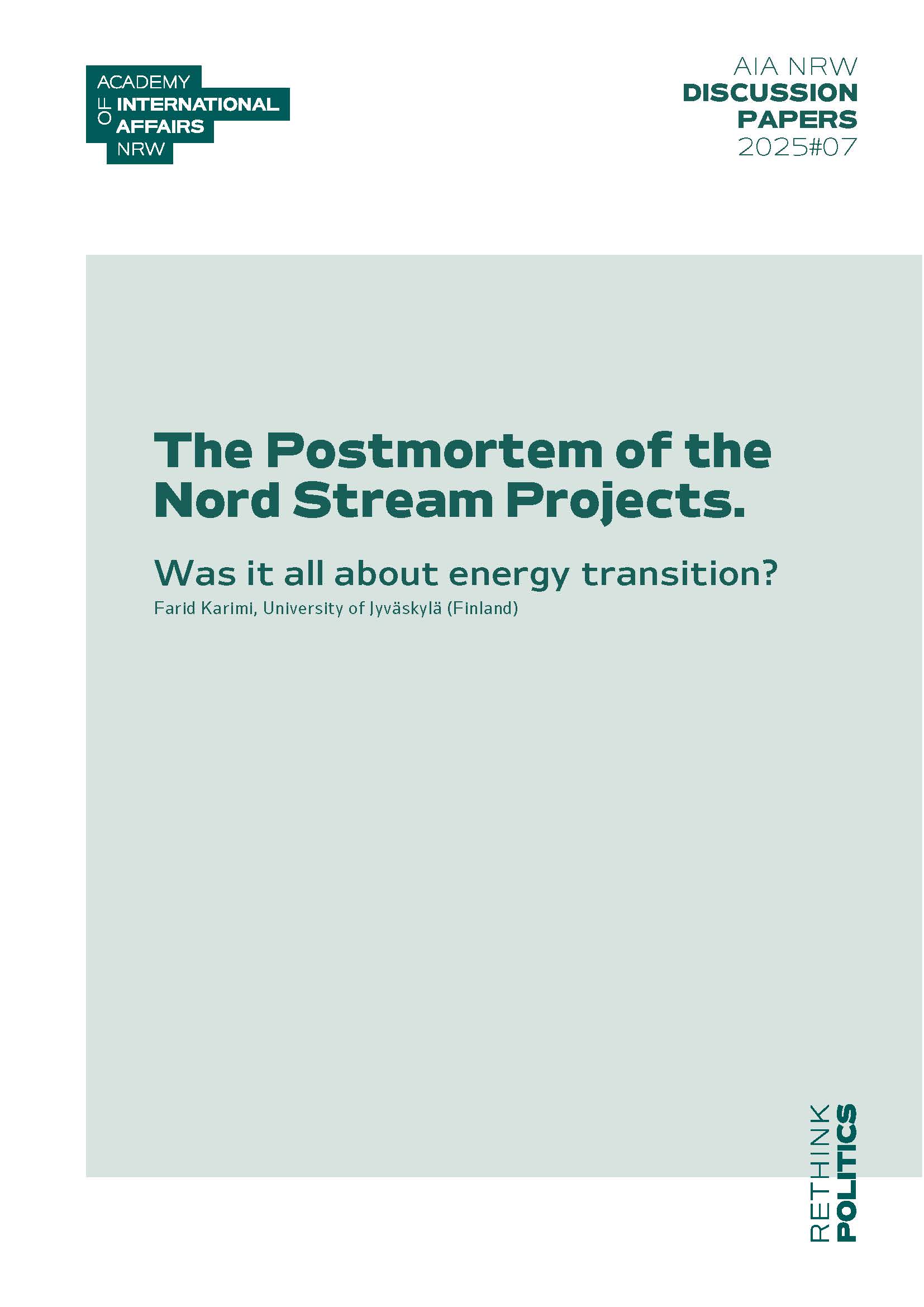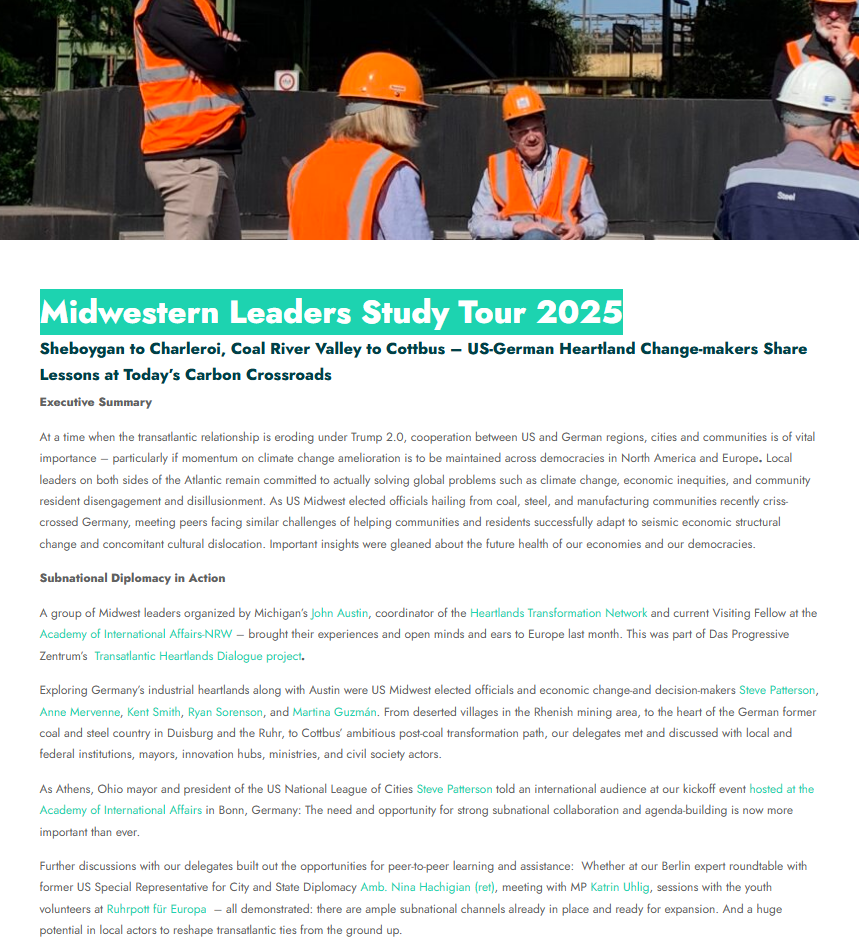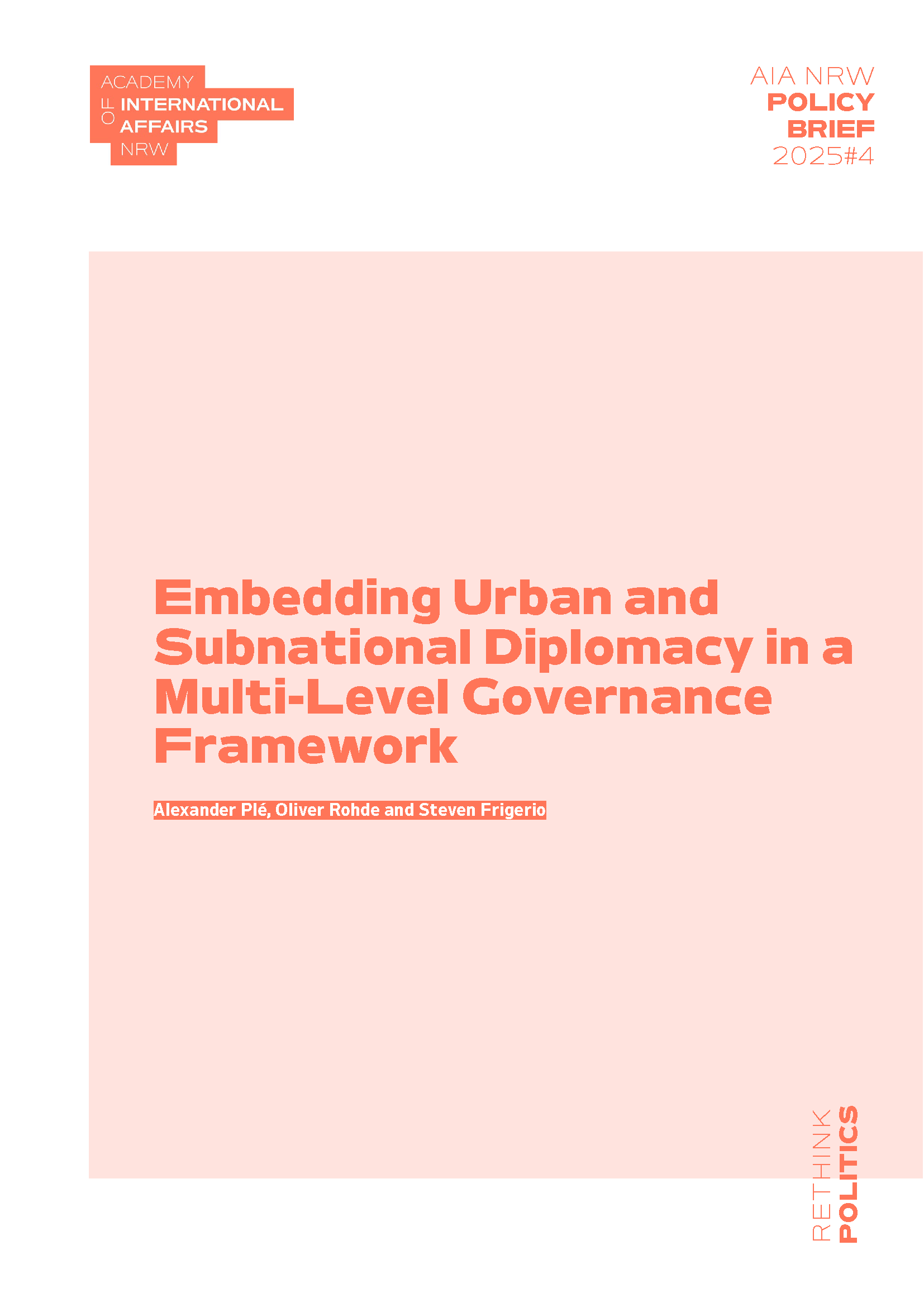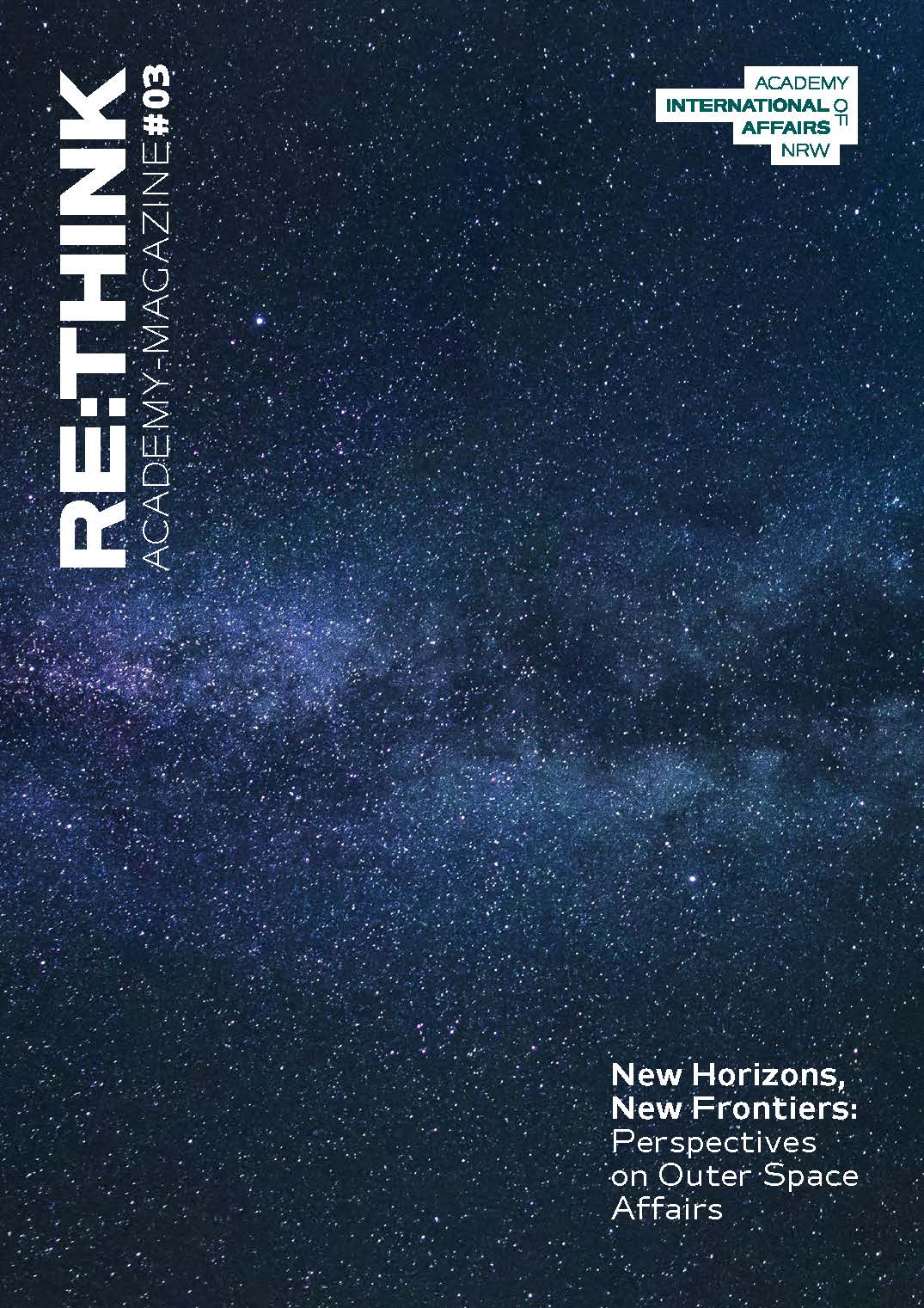
© Katja Velmans
Publications
-
City Clusters in China-Germany Subnational Diplomacy
This paper offers a new framework for understanding China-Germany sister-city diplomacy through the lens of city cluster logic, enabling subnational actors to navigate complex institutional structures and networked partnerships more strategically. Drawing upon a comprehensive policy analysis and a series of 68 interviews conducted in Germany and China between 2022 and 2025, this study illuminates…
-
Masculine hierarchies in migrant homosocial workspaces: dominating and subordinating masculinities of Tajik labour migrants in Russia
This article analyzes how masculinity practices transform in homosocial workspaces of labour migrants. Drawing on extensive fieldwork in Russia and Tajikistan, the article scrutinises the experiences of Tajik migrant men who work in the largely informal construction sector in Russia. Their interactions are thus embedded in this country’s capitalist system, as well as ist migration…
-
Tradition, State, and Justice: Rethinking Statehood through Hybrid Governance in Nigeria and Pakistan
Hybrid governance in Nigeria and Pakistan has not only persisted as a legacy of colonial state formation but has also evolved into a complex system of shared authority between state institutions and traditional, religious, and community actors. This evolution reflects a qualitative shift toward negotiated governance, where Emirs, Obas, vigilante groups and jirgas play central…
-
Understanding Cultural Diplomacy and International Cultural Relations
The book analyzes the role of culture as an instrument of international politics and transnational understanding. It focuses on the theoretical foundations and practical forms of cultural diplomacy as distinct from international cultural relations. It examines the use of cultural means in the context of soft power and the significance of state and non-state actors.…
-
How the United States’ and Germany’s Politics Got Upended
The most recent national elections in two of the world’s leading economic powers and democratic stalwarts—Germany and the US—saw ethnonationalist parties closing in on taking power. The recent rapid rise in support for Germany’s radical right AfD party; and the success of Donald Trump’s MAGA movement now threaten to bring the institutional pillars and norms…
-
The Postmortem of the Nord Stream Projects
This paper presents a postmortem analysis of the Nord Stream 2 (NS2) pipeline project, examining its political, economic, and security implications within the Baltic Sea Re-gion (BSR) and the broader European Union (EU). Initially framed as an essential part of Ger-many’s energy transition, NS2 evolved into a symbol of geopolitical miscalculation and intra-EU discord. The…
-
Midwestern Leaders Study Tour 2025
The Midwestern Leaders Study Tour 2025 brought US Midwest leaders Steve Patterson, Anne Mervenne, Kent Smith, Ryan Sorenson, and Martina Guzmán together with German counterparts to tackle industrial and climate transitions. Led by John Austin, Fellow at the Academy of International Affairs NRW, the delegation launched at the Summer Academy in Bonn. Through subnational diplomacy,…
-
Embedding Urban and Subnational Diplomacy in a Multi-Level Governance Framework
Promoting urban and subnational diplomacy within a coordinated and synergetic multi-level governance framework is an important way to address global interconnected risks and challenges. Given the different nature, interests and positions of cities, subnational regions, national states and international organizations, their visions and ideas can substantially diverge from each other in some points. In a…
-
RE:THINK Academy Magazine #03
This issue explores pressing global dynamics across outer space governance, climate transformation, and conflict resolution. Articles examine the urgent need for security frameworks in space, Europe’s autonomy in orbit, and environmental perspectives beyond Earth. Simultaneously, it addresses structural change, geopolitical energy shifts, democratic engagement, and innovative approaches to diplomacy and peacebuilding from Ukraine to the…
-
Russia’s War against Ukraine and the Black Sea Region: Continuity and Change
Russia’s full-scale invasion of Ukraine in 2022 has shifted the Black Sea region from the periphery to the center of Euro-Atlantic and global security. The Kremlin seeks to dismantle Ukraine’s sovereign statehood, and cutting off Ukraine’s access to the Black Sea would be a major step towards that. Russia has imposed a blockade on Ukrainian…
-
The EU and the US after Russia’s invasion of Ukraine: a new convergence on strategic autonomy?
The European Union’s (EU’s) foreign policy and identity as a global actor have been deeply embedded in the liberal internationalist policy paradigm (Jørgensen et al, Chapter 1 in this volume; Jørgensen et al, 2020). The principles and norms of liberal internationalism, such as free trade, mutual respect of sovereignty, collective security, multilateralism, rule of law,…
-
Preference convergence, functional pressure and supranational entrepreneurship: explaining the launch and design of the EU’s military assistance mission to Ukraine
In October 2022, the EU established a military assistance mission in support to Ukrainian armed forces (EUMAM Ukraine). The decision to launch the mission runs contrary to what one would intuitively expect from the EU, considering member states’ traditional divisions on Russia, alternative training initiatives, Ukraine’s lacklustre position and the mission’s unconventional design. Despite the…
